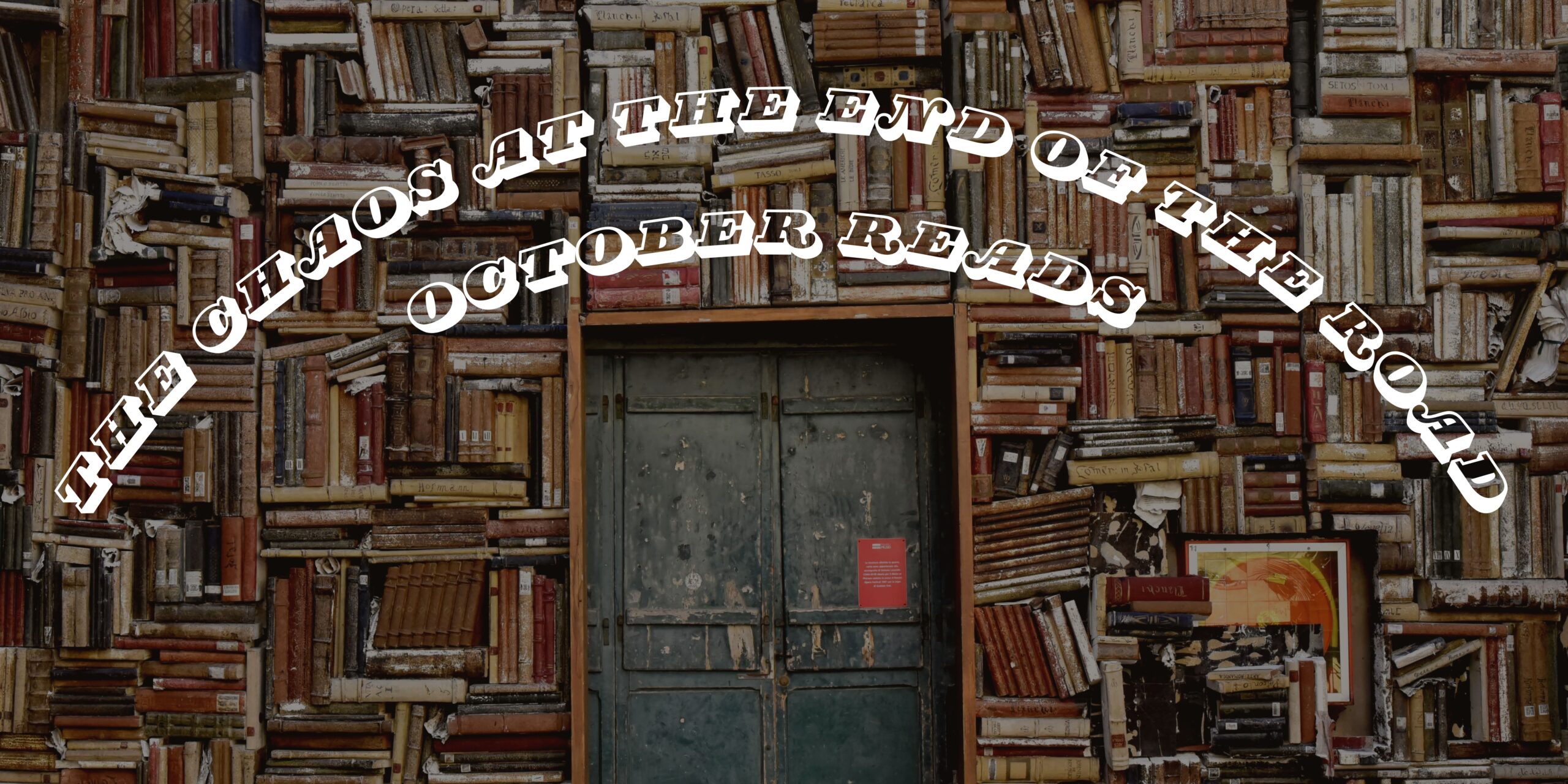When this years book review blog posts started, I had no set monthly theme and yet I unintentionally read books with similar themes/styles/subgenres in those first two months. So then I made a conscious effort to do more than just “read nothing but horror” for 2023. I planned a reading theme for each month. But now, with the end of the year approaching, the themes are unravelling.
I might have started out by planning themes for the fall months, but circumstances persuaded me to be flexible with those rules I had set for myself. And when I became stressed that I was falling behind on certain reading goals, I had to remind myself that 1) I am still ahead of my Goodreads reading goal and will likely surpass that one, and 2) these goals are for no one but myself. No one it hurt or upset if I don’t keep to my themes or if I change my reading list at the last minute.
Besides, this is the penultimate installment of this recurring post. So what if it’s not what I had originally planned? It won’t be a problem anymore in the new year.
And with that, let’s turn to the books!
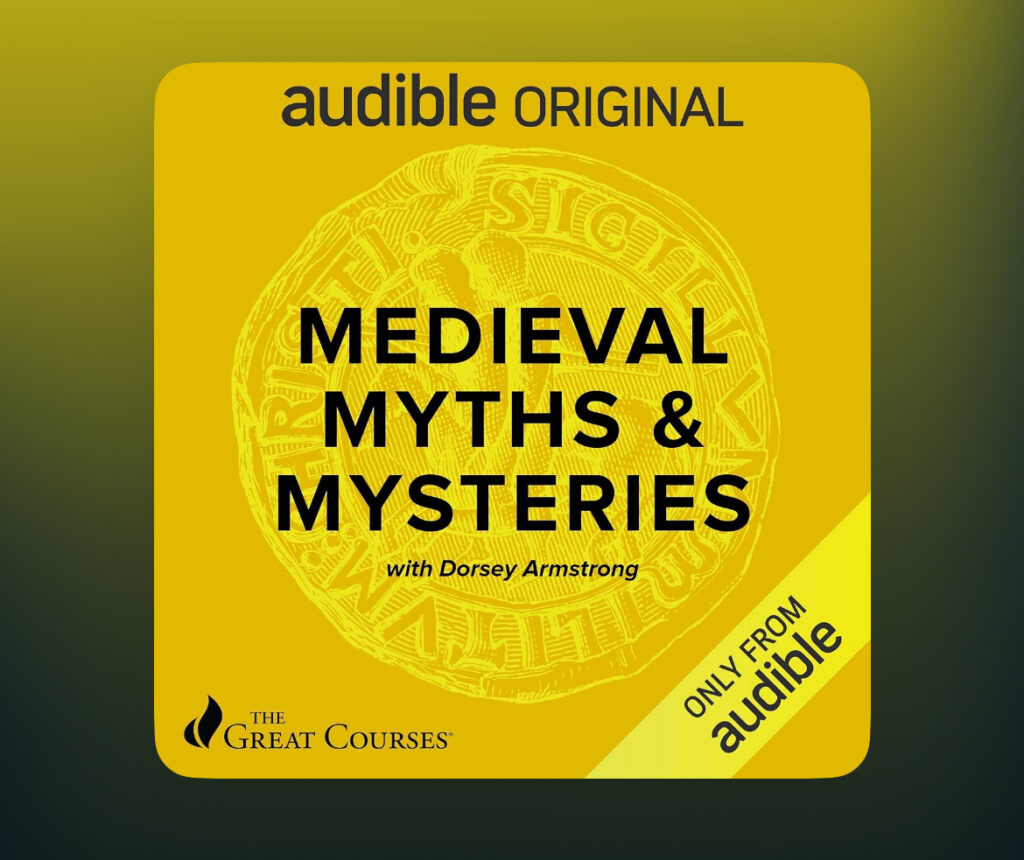
Medieval Myths & Mysteries by Dorsey Armstong:
This was hilarious to listen to because of Armstrong’s passion for the subject matter. It was as if this entire audiobook was recorded out of spite, and I appreciate that.
In each lecture, she laid out common myths and misconceptions about the medieval period and then said “this is why you’re wrong.” I loved her hatred for historical inaccuracies.
And, most importantly, I learned lots of interesting facts. The one that was the most mind-blowing to me was that what we think of as Medieval torture devices were, for the most part, created after the Medieval period and were never actually used for torture!
Conspiracies & Conspiracy Theories by Michael Shermer:
This is not horror, but let me explain my reasoning. In September, I watched some documentaries and mocumentaries on cryptids and one of the speakers mentioned his belief in a certain creature was essentially a conspiracy theory. I had never thought of it like that before. So I gave this book a listen.
It was fascinating to learn about real and farfetched conspiracies and conspiracy theories throughout US history. And it was terrifying to see just how easy it is to indoctrinate someone into believing some of these theories. I guess I got my horror after all.
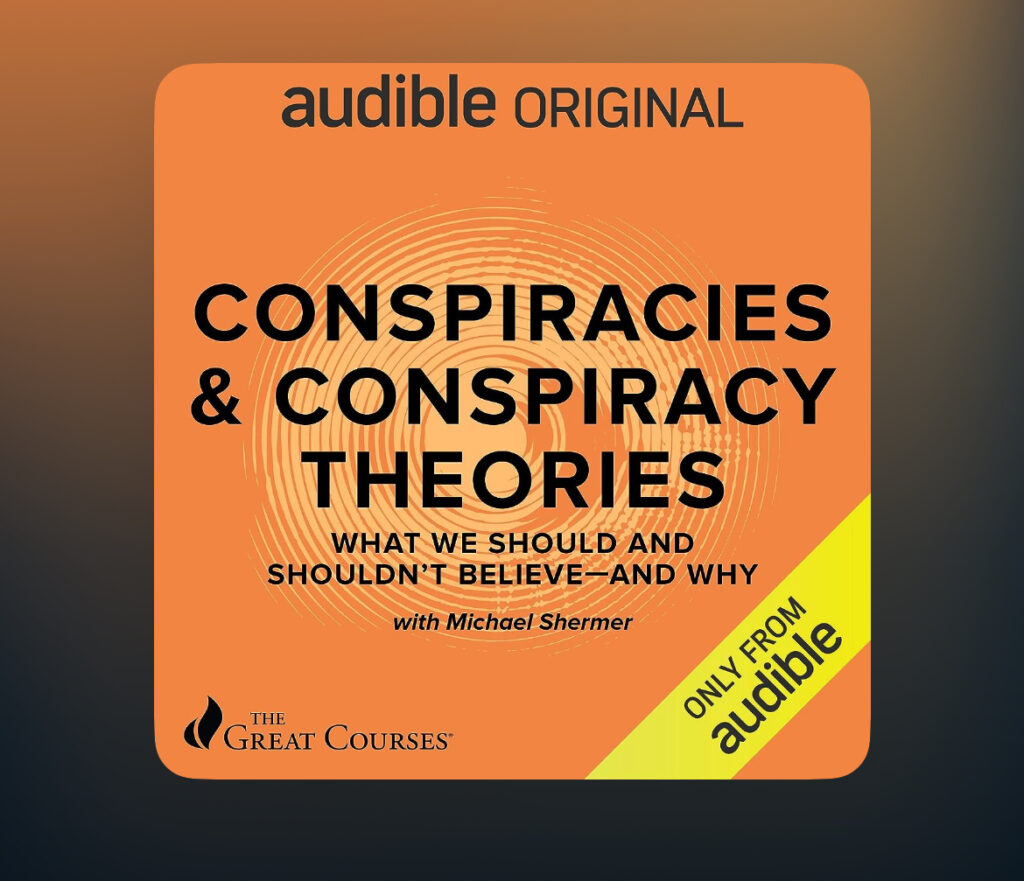

Avoiding Burnout by Serena Wadhwa and Lisa Page:
I’ve burnt out before. It’s not fun. And recovery can take a long, long time. I figured that since I was already listening to The Great Courses, and I’ve recently started life as a self-employed person, that it might be a good time to give this one a listen.
Although there is some very good information and advice, I feel that I listened to this audiobook a few years too late. As this was published soon after the pandemic caused many of us to burn out, a lot of the information and anecdotes were pandemic specific. And despite the useful information about avoiding burnout in the workplace, this didn’t really pertain to my specific situation. It did, however, make me look back on some of my previous jobs and go “wow I knew that job was bad, but I was mistreated even more than I realized.”
The Science of Sci-Fi by Erin Macdonald:
I’ll be honest, I’m not entirely sure I understood every single concept that came up, but I had fun!
Macdonald mentions at the start of the lecture series that she loves teaching people about the scientific concepts presented in science fiction, and you can tell that she really does enjoy this. Some of the heavier concepts were a little over my head, but I still enjoyed learning about them and hearing which movies/shows got it right.

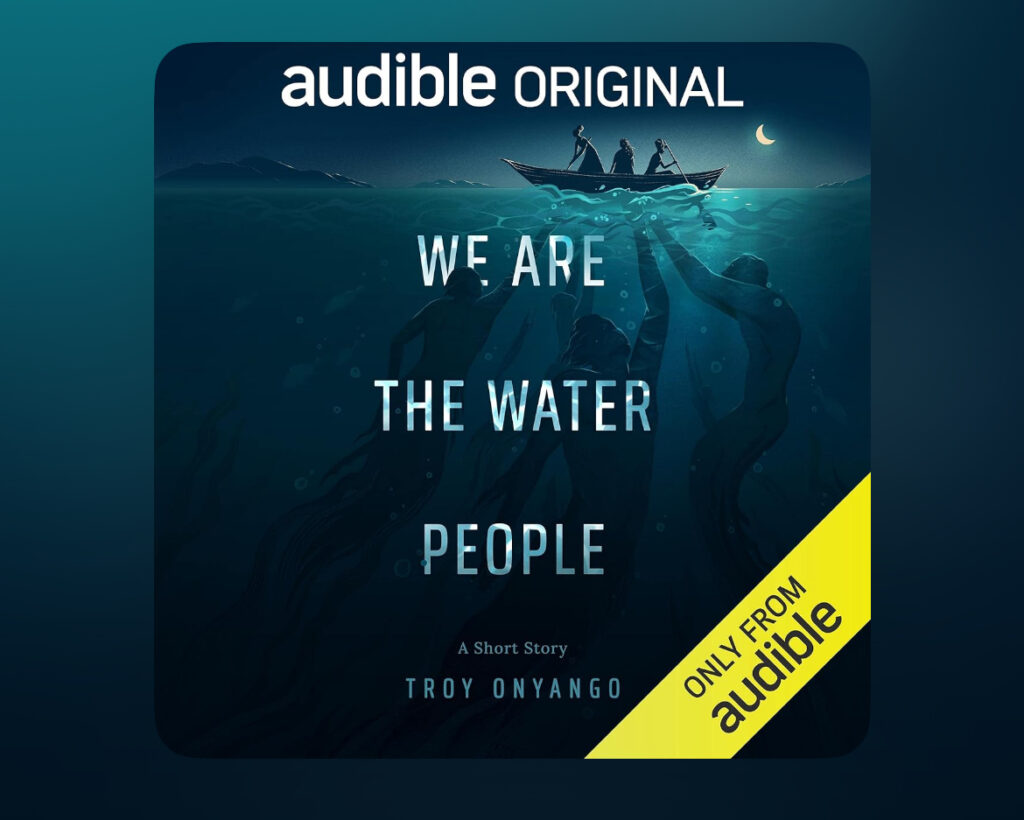
We are the Water People by Troy Onyango:
This story is beautifully written and poetic in style, but despite the wonderful narration I wish I had read it on paper first.
Maybe my brain just wasn’t firing on all cylinders the day I listened to it, but I was very confused until I realized my error. Had I seen the words written on the page, I would have noticed a difference between the [child’s] father, and the Father (i.e. the priest). One character is alive, and one is dead, so I was lost in a few scenes until I could figure out that these were two different people.
I would love to listen to this audiobook again now that I’ve realized my mistake.
The Trench by Steve Alten:
If Alten’s goal was to make the most insufferable villain of all time, he succeeded. I hated Benedict Singer because of his obnoxious appearance and way of quoting Latin. But he was a damn good cartoon villain. His counterpart, Celeste, was equally obnoxious but better developed. And that last scene between the two of them was wild. I was not expected to read something like that in a book about prehistoric sharks.
I’m impressed that Alten had me so focused on the characters when there was a big shark swimming around the whole time. And although I enjoyed it, the first book in the Meg series is still the best.
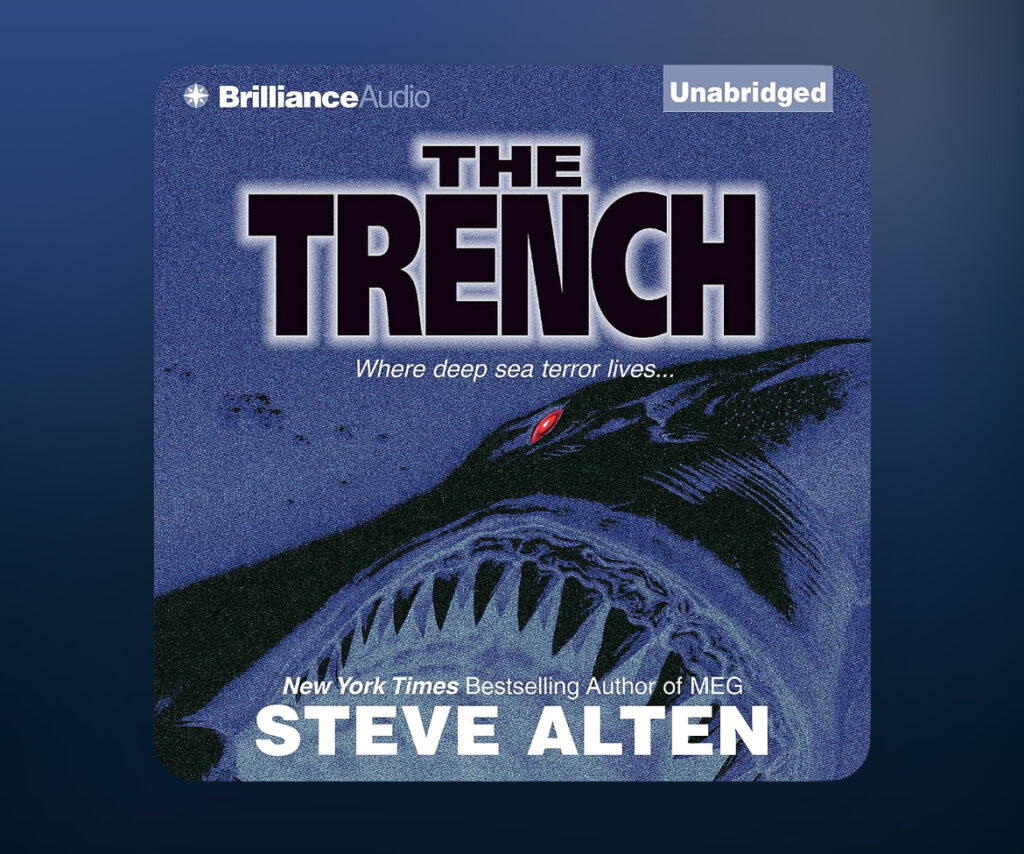
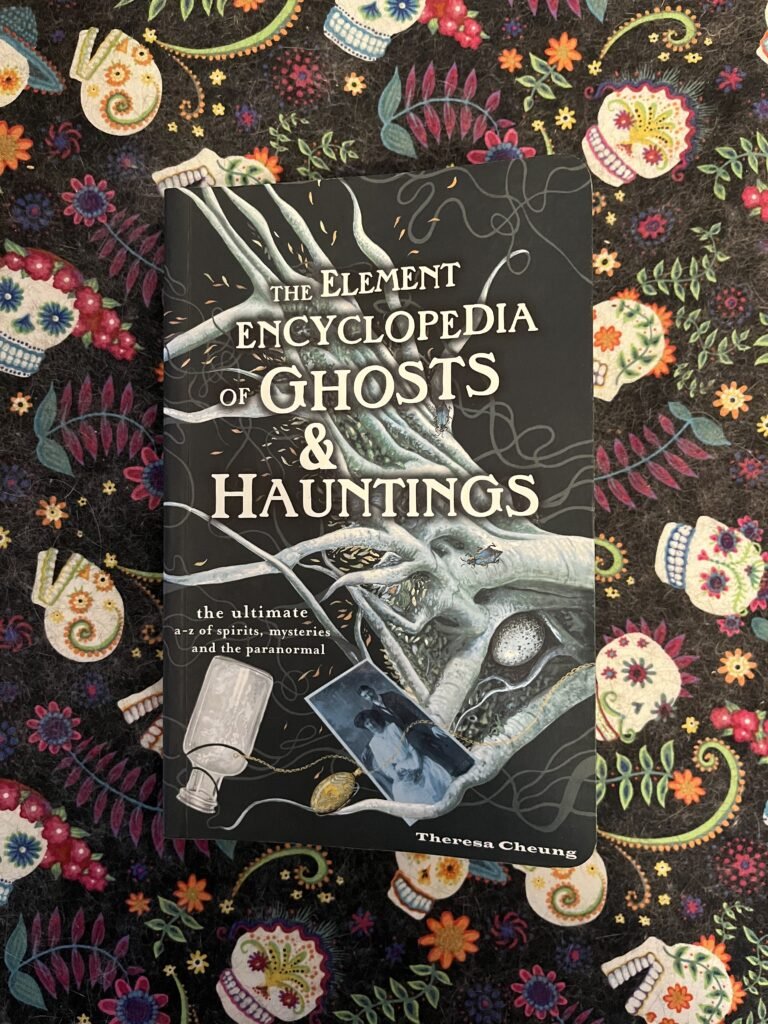
The Element Encyclopedia of Ghosts & Hauntings by Theresa Cheung:
Back in my late teens/early 20s, I was obsessed with collecting these books. I have 8 titles in my collection from The Element Encyclopedia. This was the only one I was never able to bring myself to read because I was so afraid of ghosts. Oh how I’ve changed…
I decided to give it a read for preptober as I’m writing a paranormal investigation story for NaNoWriMo and thought I’d find some interesting information in here.
Unfortunately, this book was not good. Either I’ve been looking back at this book series with rose coloured glasses thanks to nostalgia, or this is just the weak one of the bunch. Many of the entries had little to do with the paranormal and dealt more with fantasy elements. And any paranormal entries I read that were of use to my current WIP contained information I had previously come across.
What’s worse is that there is absolutely no entry on Ed and Lorraine Warren – who did big things in the field even before the Conjuring films became popular – and yet there were entries on plenty of lesser known paranormal investigators.
On Writing by Stephen King:
If you’ve taken any kind of writing course, sat in on a workshop, or just existed in the writing community, you’ve likely heard of this book. You don’t need me to tell you how good it is, and how useful it is, because everyone else has already done it.
This was one of those titles on the dreaded TBR pile that I was waiting for “the perfect moment” to start. On the one hand, I regret waiting so long. On the other, reading this memoir at this point in my publishing career was helpful. I won’t be surprised if I end up re-reading it later in my career.
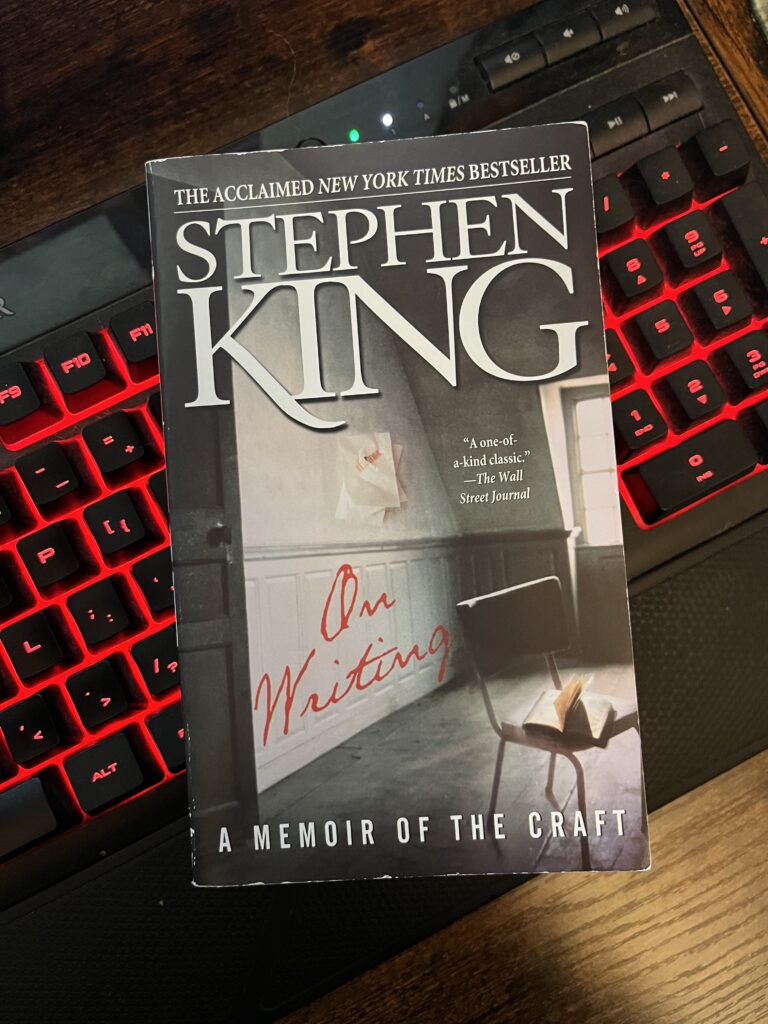
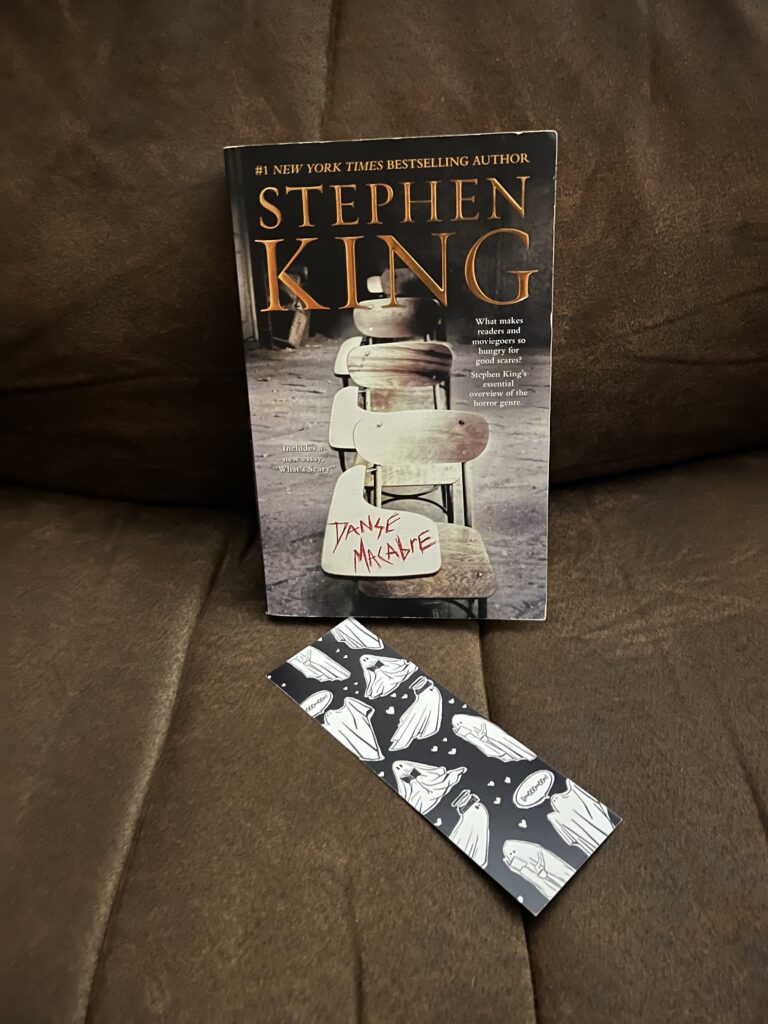
Danse Macabre by Stephen King:
Another book from the dreaded TBR pile that was waiting for it’s “moment”. After finishing On Writing, that moment came.
The majority of this non-fiction book focuses on horror in film, with only one chapter dedicated to horror literature. King himself said that he could write an entire book just on the literature portion and I think he should have. This would have been an interesting two-part series on movies and books.
And since this is from a very specific period of time, King only looks at works from a roughly 30 year period. I, for one, would love a modern update with his thoughts on more recent horror works.
Although not as good as On Writing, you can tell from my demands for more that I enjoyed it.

